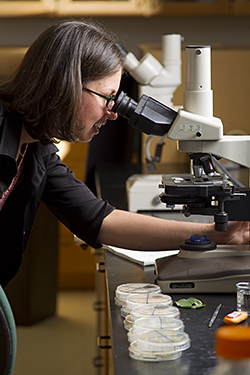We have extracted some of our favorite New Jersey, national, and state websites for easy reference for school administrators and School IPM Coordinators.
New Jersey IPM Resources:
 Rutgers New Jersey Agricultural Experiment Station Cooperative Extension (RCE) reaches people through meetings, workshops, conferences, publications, electronic communication, distance learning, and mass media. Thousands of New Jerseyans are reached through the combined efforts of professionals and volunteers who provide educational programs in all counties throughout New Jersey.
Rutgers New Jersey Agricultural Experiment Station Cooperative Extension (RCE) reaches people through meetings, workshops, conferences, publications, electronic communication, distance learning, and mass media. Thousands of New Jerseyans are reached through the combined efforts of professionals and volunteers who provide educational programs in all counties throughout New Jersey.
Services:
- RCE operates in all counties throughout New Jersey. A listing of your county extension offices is online as well as in the white pages of your telephone book. In addition to IPM expertise, your County RCE office will also have a wide selection of pest management and IPM Fact Sheets.
- The RCE Website has many links, free publications, and an abundance of information about pests including those that affect schools, homes, and municipalities.
- Pesticide Applicator Training Website. For those seeking applicator licensing, the site includes: current certification and licensing requirements; where to get applicator training manuals; and the current schedule and locations for certification exams. Specifics of operator licensing are also discussed.
- Publications: Pest identification and management resources for community, home, and pest management companies. See online selection.
- Plant Diagnostic Laboratory And Nematode Detection Service. Services include: disease and insect pest diagnosis; plant and weed identification; insect identification; fungus and mold identification; nematode assays; screening for Acremonium Endophytes; fungicide resistance screening; and other services available by contract.
- Soil Testing Lab. Services includes analysis and report on soils for various categories: 1) Lawn, Shrubs, Flowers, Trees, or Home Vegetable or Fruit Garden; 2)Greenhouse Growing Media or Compost; 3) Field, Commercial Vegetable and Fruit, or Nursery Crops; 4) Golf & Sport Turf; and 5) Technical Testing.
- The ‘IPM Report Cards for School Grounds’. Provides a series of self-assessment tools that will allow schools to measure their adoption of IPM on school grounds. Includes: General Requirements, Athletic Fields, Turf, Ornamental Plants, and Landscape Plantings.
- IPM-based pesticide applicator training courses and courses for School IPM.
 Resource: New Jersey Department of Environmental Protection
Resource: New Jersey Department of Environmental Protection
Contacts: Pesticide Control Program
Website: www.state.nj.us/dep/enforcement/pcp/
The New Jersey Department of Environmental Protection Pesticide Control Program released its new School IPM webpages following Earth Day press conferences with Governor James McGreevey announcing the State’s School IPM initiative. See the new webpages at www.nj.gov/dep/enforcement/pcp/pcp-ipm.htm. The website sets the framework for regulations resulting from the passage of the New Jersey School IPM Act in December 2002. The regulations were issued on May 3, 2004. The website provides insight into how the law will be interpreted by the NJDEP. Further, there is a section describing the prescriptive nature of Act-defined ‘low impact pesticides’, information that would more typically be defined in regulations and unusual for a law. Sections of the webpages include:
Laws & Regulations: The NJ School IPM Act provides and announces Pesticide Control Regulations, N.J.A.C. 7:30-13; see www.nj.gov/dep/enforcement/pcp/bpc/ipm/s137_school_bill.pdf.
FAQs— includes ‘General’, ‘School Compliance’, ‘Commercial Pesticide Applicators’, and ‘When Pesticides are Used at Schools’ Low Impact Pesticides: Act-defined. Tools & Templates: forms for notification, posting. Publications: NJDEP IPM Minimum Criteria Documents. School IPM Pilot Project: Project Summary of a 3-School IPM Pilot in New Jersey. Power Point Presentations: Slides of lectures given by the NJDEP on School IPM. Links: general listing of IPM and School IPM resources.
National Sites:
IPM Institute of North America
Resource: Free IPM Online Training Course for School Staff,
US Environmental Protection Agency
Website: Managing Pests in Schools www.epa.gov/managing-pests-schools
Resources:
- Publication: Pest Control in the School Environment Adopting Integrated Pest Management. EPA 735-F-93-012; 8/93. Great basic overview introduction to School IPM. Defines IPM. Outlines the seven steps to setting up a School IPM program. Also details evaluating the costs. Order/Access: Print online. The printed version of the brochure (publication number EPA 735-F-93-012) may be ordered through the National Service Center for Environmental Publications (NSCEP) at https://www.epa.gov/nscep, or by telephone at 1-(800) 490-9198.
- IPM Listserv
- Webinars about Integrated Pest Management in Schools: The EPA Center of Expertise for School IPM is now hosting its 2017 webinar series featuring experts from across the country relaying educational and practical strategies for establishing and improving integrated pest management programs in schools.
Bio-Integral Resource Center
Web address: http://www.birc.org/
Resource: Integrated Pest Management for Schools: A How-to Manual
Authors: Sheila Daar, Tanya Drlik, Helga Olkowski and William Olkowski. Manual was written for the Environmental Protection Agency (EPA) in 1997. The ‘source’ of many School IPM Manuals. Covers IPM strategies for 14 of the most common pests or problem sites in U.S. schools. Chapters 1 through 4 targeted at school board members, administrators, principals, facility managers, and parents seeking to establish IPM policies, pest control contract guidelines, and other administrative systems designed to institutionalize IPM. Appendix B, “How To Develop An IPM Program,” provides a step-by-step guide for implementing a school IPM program, and includes a discussion of the psychological and institutional barriers to IPM. Chapters 5 through 19 are targeted at pest control personnel and others involved in the day-to-day pest management in a school.
University of Florida.
Web Address: http://schoolipm.ifas.ufl.edu/.
Description: Comprehensive national site for IPM in schools.
Resource: The School Integrated Pest Management Listserv subscribe or unsubscribe to this mailing list. This list is open for membership to anyone interested integrated pest management (IPM) in schools and who wishes to discuss this subject with others on the list. It will also be used to inform subscribers of additions and updates to the School IPM website housed at the University of Florida.
State School IPM or IPM Websites
California
Department of Pesticide Regulation (DPR)
Web Site: http://apps.cdpr.ca.gov/schoolipm/
Illinois
A Practical Guide to Management of Common Pests in Schools. March 1999.
Provider: Illinois Pest Control Association, Illinois Department of Public Health, Structural Pest Control Advisory Council, and the University of Illinois Extension.
Web Address: www.idph.state.il.us/envhealth/pdf/schoolpests.pdf
Maine
School IPM Program
Provider: Maine School IPM Program (website cooperators are the Maine Dept. Of Agriculture Board of Pesticides Control and the University of Maine Coop. Ext. Pest Management Office).
Web Address: www.maine.gov/agriculture/pesticides/schoolipm/
Description: Includes several very informative practical PowerPoint presentations on School IPM, and a selection of School IPM Fact Sheets.
Maryland
- Integrated Pest Management in Schools: IPM Training Manual. 1995. MDA 288-95. 56 pp. Solid introduction to IPM practices and record keeping.
Provider: Pinto & Assoc. for MD Dept. of Agriculture, 50 Harry S. Truman Parkway, Annapolis, MD 21401. (410) 841-5710.
Pennsylvania
Provider: Penn State University.
Resources:
- Pennsylvania Integrated Pest Management Program (PA IPM) IPM for Pennsylvania Schools and Childcares: A How-To Manual. 2019 edition. Targeted at school officials and others interested in implementing IPM in their school. Specific to PA rules & regulations; but, much adaptable information (monitoring, scouting, Contract Specification Guide, etc.). Takes 30 seconds to load the webpage; must fill out contact form to download the guide itself. Collaborators: The PA IPM Program (a collaboration between the PA Department of Agriculture and The Penn State University). Other manual collaborators include: PA Departments of Education and Health.
